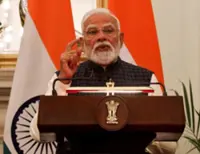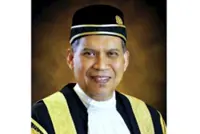Networking with people of other races — Lavindar (middle) with Lim Jit Nee (right) who is head of Innovation and venture in a telecommunications company, and Ahmad Khairi Zulkifli who is head of digital channels in a funding company for startups.
WHEN Lavindar Singh Jay first arrived at his university campus in Nilai, Negri Sembilan, 20 years ago, the Kuching native remembered feeling like a small towner in a big city.
Over time, however, he discovered how the Malaysian spirit has the ability to unite, regardless of race and background.





